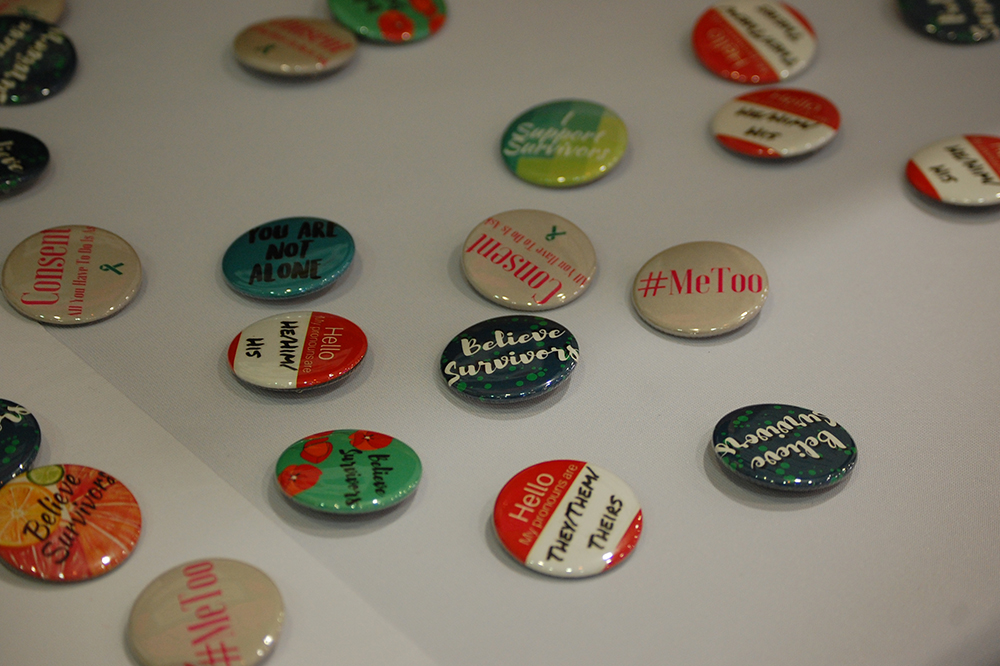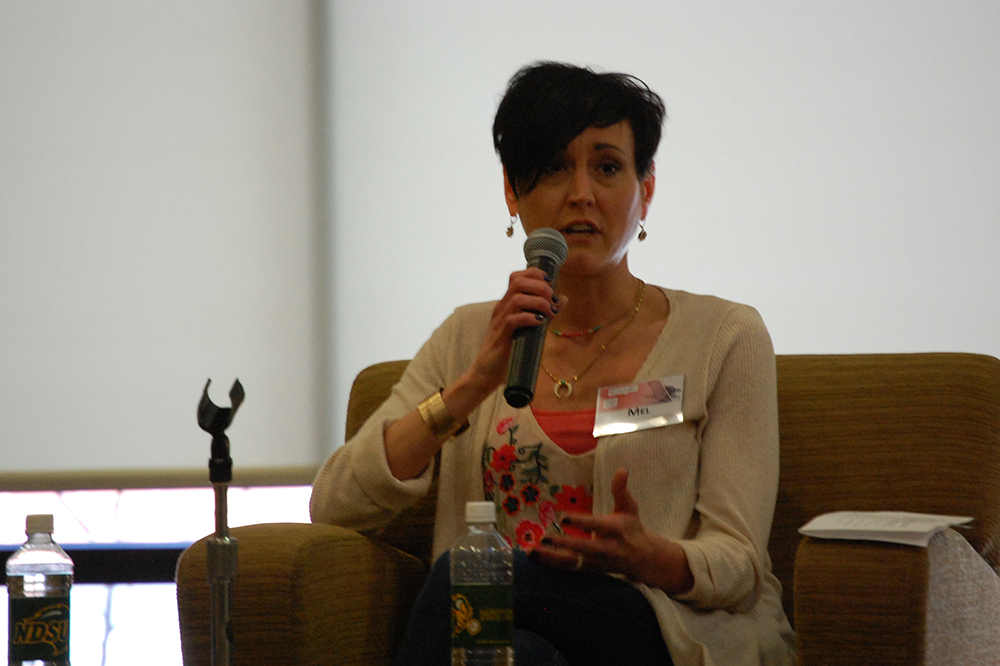Learning how to deal with sexual harassment in the workplace can change someone’s environment

Sexual harassment can follow someone into the workplace and create an environment that is not safe or comfortable for many involved. Knowing how to react, handle and notice when someone or you are being sexually harassed can prevent and spread awareness of the reality.
On April 8, the NDSU Career Center hosted a panel discussing sexual harassment in the workplace. Many panelists expressed how they were there to talk about the taboo topic and how many have experienced sexual harassment in the workplace themselves, so they wanted to show the reality and need for allies.
Among the panelists were Abby Tow, from Lutheran Social Services of North Dakota, Kathy Kulesa, from the North Dakota Department of Labor and Human Rights, Leann Wolff, from Great Outcomes Consulting LLC, Mara Wessel, from Youthworks North Dakota, Mel Fierstine, from the Rape and Abuse Crisis Center, and Mitch Johnson, from CoreLink Administrative Solutions. The panel was moderated by Veronica Michael from the Minnesota State Moorhead Career Development Center.

One of the panelists, Mel Fierstine, shared how sexual harassment should be defined and prevented
The word “harassment” is used a lot, but no one truly has a clear definition for it. “Sexual harassment is any unwelcome advance to somebody in a sexual nature,” Fierstine said. “It could be that something is said to you in a sexual nature, and it’s in the workplace. It is feeling uncomfortable in anyway.”
The panel talked about how being sexualized starts early and confuses people in how to define sexual harassment. The norm starts as a child. Tow explained how little girls grow up being told that a boy likes them if they act mean or tease them, so it becomes their norm from the beginning.
Wessel shared how elderly people in the family will pass off creepy relatives and laugh as they pitch the girls. Then, when that person goes into the workplace, they will simply laugh it off like they were taught to do.
According to the panelists, training for sexual harassment needs to start as a child and include all genders and sexualities. It will become natural if you start to talk about it instead of being a taboo topic and a bad norm in the society. As people get older, they are already used to the norm, so younger generations need to make the change.
For older generations, they need to gain all perspectives and educate themselves on the situations, so attending events like these will help change the norm. Knowing the rights and responsibilities of being a person can change how you see harassment and how you can deal with it.
People lead by your example. When someone experiences sexual harassment and does not say anything, another person may encounter it and simply follow their example. “We might be modeling behavior that we don’t want to model,” Wolff said.
So, what can you do if you notice sexual harassment or are being sexually harassed?
Knowing how an employer expects someone to act in the workplace can change the whole environment, so in the interview process ask them about it so you know the process of sexual harassment claims and whether they are taken seriously at the company.
Remember, everyone has different barriers, so what may seem normal for you is not for them. If something makes you uncomfortable, speak out about it. Sometimes when you feel uncomfortable you may freeze in the moment, so taking a couple days to think about the incident could be beneficial. “It’s never too late to speak up,” Fierstine said.
Look for allies: “You can’t think clearly when you’re being treated that way,” Tow said. So, by having an ally, it can help you consider your options and talk about the situation. And vice versa, if a co-worker talks to you about feeling uncomfortable, be an ally and listen to them. Intervene if you notice someone feeling uncomfortable. Try asking them to come help you with something to get them away from the situation.
Sometimes a person being harassed cannot see that it is harassment, but they may still feel uncomfortable. Showing that you also felt uncomfortable allows the person to recognize the harassment. “I can guarantee you that 99.9% of those people in the room are just as uncomfortable as you are,” Fierstine said.
When noticing something awkward in the workplace, saying a simple comment back, such as “Ew,” “What was that?” or “I feel uncomfortable,” can get a person to think about how they are acting. It can point out something that a person may not realize is harassment toward another.
Last, but not least, contact your supervisor or someone you trust about the incident so if it continues it can be reported.
Any sexual harassment claims are open, so calling Great Outcomes Consulting LLC and asking about whether a company, landlord, employer, et cetera has any claims against them, they will give any information or even a copy of the claim.
NDSU has services on campus to help anyone feeling uncomfortable in any situation, offering information and a lending ear to listen about the situation.
Please contact any of these people on campus to talk about, find options or report sexual harassment claims:
Emily McGann: Civil Rights/ Title IX Investigator and Deputy Title IX Coordinator
Kevin Stockbridge: LGBTQ+ Coordinator
Megan Talcott: Sexual Assault Prevention and Advocacy Coordinator
Teresa Demers: Counselor
